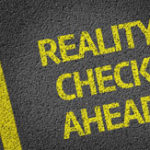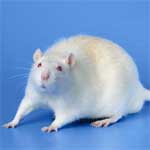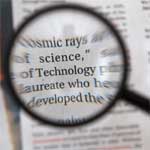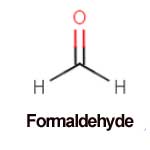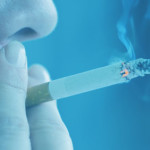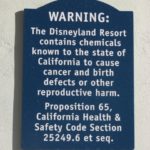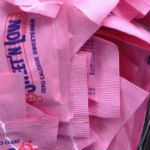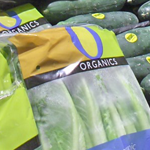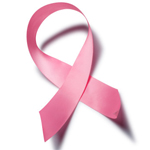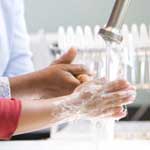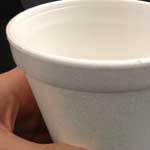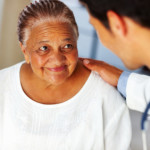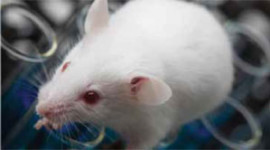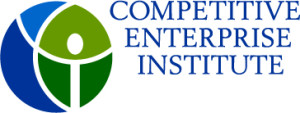"Where is Our Money Going?," By The Center for Accountability in Science Team. We’ve expressed frustration for the methods used by the International Agency for Research on Cancer (IARC) to determine what exactly causes cancer (to paraphrase their findings: everything.) When groups claim that most of the chemicals people encounter on a daily basis are cancer causing, the breathless warnings start to look like they’re coming from Chicken Little. This can be dangerous if people become so used to … [Read more...]
The Color White Classified as “Possible Carcinogen”
"New Research Brief: 5 Things to Know About Titanium Dioxide," By Center for Accountability in Science. After hearing that the French Agency for Food, Environmental and Occupational Health and Safety (Anses) recently proposed classifying titanium dioxide as a Category 1b carcinogen, we at the Center for Accountability in Science have been busy compiling evidence, and the verdict is in. Titanium dioxide is most widely used white pigment in paints, coatings, plastics, paper, inks, fibers, … [Read more...]
Biggest Cancer Risk Factor: Age
"Disease? Only If There Was Processed Food 2 Million Years Ago," By Hank Campbell. While cancer mortality has plummeted in recent years, survival rates have doubled in the last 40. Yet actual cancer rates have not really fallen overall, and there has long been a subset of people who claim that is because of our "modern" lifestyle; things like food and trace chemicals in the environment. Their solution is to be as ancient as possible; eat what they call a "paleo" diet and try to avoid chemicals … [Read more...]
On Bacon and Cancer
"Does Eating Bacon Really Cause Cancer?" By The Center for Accountability in Science. Bacon lovers in California can breathe a sigh of relief—for now, at least. The state Office of Environmental Health Hazard Assessment, which manages Proposition 65 warning labels, has announced it will not require warnings on bacon or other processed meats following news last fall that the World Health Organization’s International Agency for Research on Cancer had classified these meats as carcinogenic. When … [Read more...]
The “Science” of Carcinogens
"War On Science: Bogus Human Carcinogens," by Frank Schnell. In the last 15 years, EPA has invented three bogus human carcinogens: dioxin, formaldehyde, and TCE. Prior to the late 1990s, EPA’s cancer Risk Assessment Guidelines (CRAGs) required sufficient evidence of a cause-and-effect relationship in humans before a substance could be classified as a “known human carcinogen”. However, during the late 1990s, EPA modified its CRAGs to allow itself to classify substances as known human carcinogens … [Read more...]
EPA “Crisis” Science Racket
"How Natural Variations Became Environmental Crises: The Word Game," by Frank Schnell. In How Natural Variations Became Environmental Crises: The Numbers Racket, we looked at how officially “safe” levels of exposure gradually went from conservative, to ultra-conservative, to completely ridiculous. Even before the manipulation of numbers became commonplace, the manipulation of words was a major tool in promoting fear about science and keeping it alive. Simple words in common usage, like “risk”, … [Read more...]
Formaldehyde Cancer Claims Debunked
"Everything Causes Cancer – If You Listen to the NRDC," by Lila Abassi. I wish that when I was a student of anatomy I could have argued my way out of dissecting stinky cadavers – and I would have had a friend in Jennifer Sass, an alarmist who blogs for the Natural Resources Defense Council. She sounds off on a recent report published by the Centers for Disease Control and Prevention, which discusses health concerns regarding formaldehyde. Ms. Sass has a real issue with Lumber Liquidators, a … [Read more...]
Causes of Cancer Examined
"Cancer Causation Battle: Bad Environment, Not Bad Luck," December 17, 2015. A new study published in the journal, Nature, entitled “Substantial contribution of extrinsic risk factors to cancer development,” used quantitative measures from several different perspectives to come to the conclusion that the large majority of human cancers are caused by “environmental” factors (i.e. non-genetic), rather than intrinsic gene abnormalities or pure chance (i.e. inherited or spontaneous mutations). The … [Read more...]
Processed Meat and Cancer Baloney
"Baloney About Processed Meat and Cancer," By Angela Logomasini. Scientists from around the world convened in Lyon, France--a city famed as the world's gastronomical capital--this October to declare that local delicacies, such as andouille sausage and pork salami, are now classified carcinogens, placing them in the same category as smoking. The absurdity of that conclusion highlights the growing futility of efforts to classify certain chemicals, foods, and activities as either "carcinogenic" … [Read more...]
Meat and Cancer Baloney
"More Baloney About Processed Meat and Cancer," By Julie Gunlock. Watch out Paleo and low carb diet devotees—you might look good, but according to the World Health Organization, you’re going to die of cancer, like yesterday. ... According to story in The Washington Post: "A research division of the World Health Organization announced on Monday that bacon, sausage and other processed meats cause cancer, and that red meat probably does, too. The report by the influential group stakes out one of … [Read more...]
Cancer Warning Labels on Red Meat?
"Will Meat Come with a Warning Label in California?," By Joseph Perrone. The World Health Organization has declared that bacon, sausage and other processed meats cause cancer and that red meat “probably” causes cancer. Now, for Californians and farmers hoping to sell meat in California, the big question is: Will California require meat to come with a warning label? Proposition 65 requires warning labels on products containing ingredients “known to the state of California to cause cancer or … [Read more...]
Chemophobia Exposé
"Headline: Can Your Bathmat Cause Cancer? Hey — Don’t Worry About It!" By American Council on Science and Health. In fact, this excellent essay doesn’t even mention bathmats — but it may have to, when the next version comes out. We tried not to mention the entire headline — really, we did — but in the end, we caved, so here it is: Why You Shouldn’t Care That Yogurt, Mouthwash, Red Meat, Burnt Toast, and Bras Have Been Linked to Cancer. This exposé by (Steven) Ross Pomeroy appeared in the Newton … [Read more...]
Good News Regarding Cancer Rates
"New CDC/ACS Report on Cancer Shows Continued Good News," By American Council on Science and Health. ...[T]the CDC and the ACS jointly issued yesterday the Annual Report to the Nation on the Status of Cancer, 1975-2011. ...And these facts include: an ongoing trend in major declines in cancer deaths on all fronts, thanks to improvements in diagnosis and treatments, including immune-based therapies (often personalized), regular chemotherapy but with less toxicity and more targeted focus, and more … [Read more...]
From “Carcinogen” to Cancer Treatment
"Artificial Sweeteners: Cancer Causing or Cancer Curing?" by Center for Accountability in Science. In case you needed further evidence that scientific opinion is constantly changing, new research presented this week finds evidence that saccharin, an artificial sweetener found in brands like Sweet ‘N Low ®, may be a tool in treating cancer. The researchers found that saccharin binds to a protein found in many cancerous cells, carbonic anhydrase, disrupting its activity and potentially stopping … [Read more...]
WTC-Dust and Cancer Claims
"Another Scare Story About Deadly WTC-Dust and Cancer," By American Council on Science and Heatlh. WTC RescuersThe issue of toxic dust and fumes causing a host of diseases and ailments among the heroic workers on 9-11 and subsequently who valiantly tried to find survivors of the terrorist attacks on NYC, is a touchy one. To many, it seemed obvious that breathing in the fumes and dust of that wreckage was bound to cause harm to the workers, despite the rather rapid pronouncement of “no risk” by … [Read more...]
Eating Organic Has No Effect on Cancer Risk
"A New Study Has Found that Eating an Organic Diet Does Not Reduce the Risk of Cancer," by CBS Atlanta. Researchers monitored the health of 600,000 women aged 50 or older for nine years asking whether they ate pesticide-free organic food. Roughly 50,000 of the women developed one of the 16 most common cancers during the study period in total. No difference in overall cancer risk was found between a comparison of 45,000 women who “always” or “usually” chose organic food and 180 women who never … [Read more...]
Cal EPA’s Junkscience on Breast Cancer Risk
"Over-Reaching California EPA Regulators Promoted A False Breast Cancer Link," by Geoffrey Kabat. In 2005 the California Environmental Protection Agency (Cal EPA) issued a voluminous report on the health effects of exposure to environmental tobacco smoke (ETS) which attracted attention for its rash claim that ETS was associated with increased risk of breast cancer. Thirteen years earlier the US EPA had published a report showing a weak link between ETS and developing lung cancer. But, of … [Read more...]
Chemicals & Breast-Cancer-Awareness Month
"Breast Cancer Awareness Month: Also be Aware of Quackery," by American Council on Science and Health. The recent updated re-revision of the Women’s Health Initiative data on hormone replacement therapy reminds us, as if we needed reminding, that October is breast cancer awareness month. Even without the new information — which didn’t actually say much different from the prior re-revision, i.e. HRT is safe for menopausal symptom control — the awareness of BCA Month is inescapable for sentient … [Read more...]
Triclosan, NRDC and FDA Review
"'Shocking' Truth about Government and Soap," by Angela Logomasini. Is your hand wash slowly killing you as government regulators sit idly by? Sounds silly, but that’s what environmentalists seem to think about an antibacterial agent called triclosan, which is used in soap and other consumer products. According to the NRDC: “In laboratory studies, they [antibacterial chemicals] have been shown to disrupt hormones and can encourage the growth of drug-resistant bacteria or ‘superbugs.’” The … [Read more...]
Confused Cancer Priorities
"Modish, Anti-Science Thinking Won't Advance Breast Cancer Prevention," Geoffrey Kabat. Two months ago an entity called the Inter-Agency Breast Cancer and Environmental Research Coordinating Committee, or IBCERCC, issued a 270-page report entitled “Breast Cancer and the Environment: Prioritizing Prevention.” Read the full article on Forbes.com. … [Read more...]
Ground Zero Cancer Claims
"Ground Zero Cancer: Cynical Manipulation of Statistics Rather than Science," by American Council on Science and Health. This week’s announcement from Mount Sinai Hospital’s World Trade Center Health Program that Ground Zero workers have been found to have a “15 percent higher rate of cancer” than expected set off cries for more compensation for the heroic WTC victims of the toxic dust at the site of the terrorist destruction over 11 years ago. Read the full story in ACSH Dispatch. … [Read more...]
Cancer Clusters and Chemicals
"The Cancer Clusters That Weren’t," by Angela Logomasini A recent post in ACSH Dispatch examines an interesting question: How likely is it that some U.S. communities have elevated cancer rates, a.k.a, “cancer clusters,” because of chemical pollution? The answer: not very. ACSH points to an enlightening article published in Slate by George Johnson, who notes: Read the full article on OpenMarket.org. … [Read more...]
Response to Fran Drescher on Cancer Causes
"On Chemicals and Cancer: Response to Fran Drescher," by Angela Logomasini. I was pleased to see that Fran Drescher responded to my article on cancer trends. Drescher’s willingness to share what she learned from her struggle with cancer as well as her work at Cancer Schmancer offers some important contributions in the battle against cancer, but her focus on chemicals is misplaced. Read the full article on IWF's Inkwell Blog. … [Read more...]
Cancer Prevention
"'Cancer Prevention Tips' to Avoid," by Angela Logomasini. If you want to reduce your cancer risks, be careful what advice you follow. A number of activist groups offer a range of cancer-fighting tips that don't mesh with the National Cancer Institute's (NCI) latest report on cancer trends. Read full article on Huffington Post. … [Read more...]
Environmental Causes of Breast Cancer
"Should breast cancer research be redirected? by American Council on Science and Health." In a recent New York Times article, reporter Denise Grady sheds light on a report stating that too little of the money spent on breast cancer research goes toward finding “environmental causes of the disease and ways to prevent it.” Read the full article in ACSH Dispatch. … [Read more...]
Breast Cancer Study Sets Misguided Priorities
"Breast Cancer Victims Suffer From Foolish Priorities," by Angela Logomasini. In government, political priorities often supersede science and good health policy. In fact, a recent government report may shift funding away from useful research to study the most unlikely causes of breast cancer. More women will suffer in the future than necessary as money for useful research shrinks. Read the full article on OpenMarket.org. … [Read more...]
Atrazine Study: No Cancer Risk
"Atrazine: Still not a Carcinogen," by American Council on Science and Health Experts have looked at the evidence condemning the weedkiller atrazine as a “carcinogen” and found it wanting. The four researchers were affiliated with the Tisch Cancer Institute, Mount Sinai School of Medicine, Harvard University and the University of London. Read the full story on ACSH Dispatch. … [Read more...]
Atrazine: Risks Low, Benefits High
"Herbicide Poses No Cancer Risk In Drinking Water," by Angela Logomasini. Over the years, the Environmental Working Group (EWG) and the Natural Resources Defense Council (NRDC) have repeatedly issued bogus reports claiming that Americans face serious cancer risks from trace chemicals found in drinking water. A new study challenges their claims regarding one of these activists’ key targets: the herbicide atrazine, which farmers use to control weeds rather than tilling the soil. Read the full … [Read more...]
Faulty Cancer Scare Related to Styrofoam Cups
"Cancer Risks Unlikely From Foam Cups," by Angela Logomasini. Whatever happened to plastic foam coffee cups? Visit any to-go coffee shop and you will most likely only find paper cups that burn your hands and let your coffee go cold. Cups made with polystyrene foam are disappearing from the marketplace because a bevy of misinformation about their environmental effects, including claims styrene — the chemical used to make them — is a carcinogen. Read the full article on OpenMarket.org. … [Read more...]
Study on 9/11 Chemicals
"Link Between Cancer and 9/11 Exposure Found to be Baseless," by American Council on Science and Health. Only a few months after cancer was added to the list of ailments covered by the World Trade Center Fund, a study conducted by the New York City Health Department has found no clear link between cancer and the environment to which those present at the world trade center on 9/11 were exposed. This study is the largest to date, examining 55,700 individuals, including rescue and recovery … [Read more...]
NRDC Misinformation on Breast Cancer
"For cynical manipulation of science, NRDC never disappoints," by American Council on Science and Health. Last week, the respected scientific journal Nature published a superb editorial castigating the Breast Cancer Coalition, a nonprofit ostensibly devoted to reducing the toll of breast cancer. The editorial pointed out that the goal put forward by the BCC, to “cure breast cancer by 2020” was irresponsible, given the complexity of cancer in general and breast cancer specifically. Read the … [Read more...]
Activism and Cancer Classifications
"How Activism Distorts The Assessment Of Health Risks," by By Geoffrey Kabat. The International Agency for Research on Cancer is renowned for producing assessments of carcinogens. But it appears that some of the agency’s evaluations may overstate the risks, for reasons that tell us a great deal about the science and politics of risk assessment. Read the full article on Forbes.com. … [Read more...]
Cancer Agency Questioned
"Respected cancer agency maybe shouldn’t be," by American Council on Science and Health. Based in Lyon, France, the International Agency for Research on Cancer is a widely respected body that produces assessments of carcinogens for use by regulators and researchers. But reputable scientists are now disassociating themselves from IARC and its research methods, a cancer epidemiologist at the Albert Einstein College of Medicine writes in Forbes. Read the full article on ASCH Dispatch. … [Read more...]
Scare Tactics Undermine Fight Against Breast Cancer
"Scare Tactics Distract from Finding a Cure,"by Carrie Lukas. With Halloween this week, one might assume that orange and black are the hands-down winners for favorite marketing décor. Yet pumpkins and witches hats have a formidable challenger in the pink ribbons signifying breast cancer awareness month, which currently adorn everything from grocery shelves to athletes’ uniforms. Read the full story on Townhall. … [Read more...]
EPA Over-Estimates on Health Benefits of Regulation
"House Testimony: EPA Grossly Overstates Economic Benefits of Regulation," By James Taylor. The U.S. Environmental Protection Agency is grossly overstating the economic benefits of its various environmental restrictions, environmental expert Richard Trzupek told the Energy and Environment Subcommittee of the House Committee on Science, Space, and Technology. Trzupek, a chemist and environmental consultant, told the House subcommittee in June 6 written testimony that EPA routinely claims … [Read more...]
Cancer Risk Factors
Environmental activists have long claimed that man-made chemicals are causing rampant cancer rates that could be addressed only by government regulation. Accordingly, lawmakers have passed laws directing government agencies to study environmental causes of cancer, estimate the number of lives allegedly lost, and devise regulations to reduce death rates. However, lawmakers should be aware of some key problems with how this system has worked in practice. First, the claim that chemical pollution is … [Read more...]
Cancer Trends
In recent decades, many have claimed that cancer is rising because of increased use of man-made chemicals. But if chemicals were a source of health problems, one might expect that as chemical use increased around the world, there would be a measurable adverse effect on life expectancy, cancer rates, or other illnesses. Yet in developed nations, where chemical use has greatly increased, people are living longer, healthier lives. According to the World Health Organization, the average worldwide … [Read more...]
Cancer Rates, BPA, and Makeup
"Cancer rates dropping in the U.S.," by American Council on Science and Health. ACSH is happy to note, yet again, that both U.S. cancer incidence and death rates continue to fall. The latest report, issued annually since 1998 and published in the journal Cancer, is compiled by various health agencies including the CDC and the American Cancer Society and includes nearly every cancer case reported through 2008. According to the statistics, the rate of new cancer cases has been decreasing at a … [Read more...]
